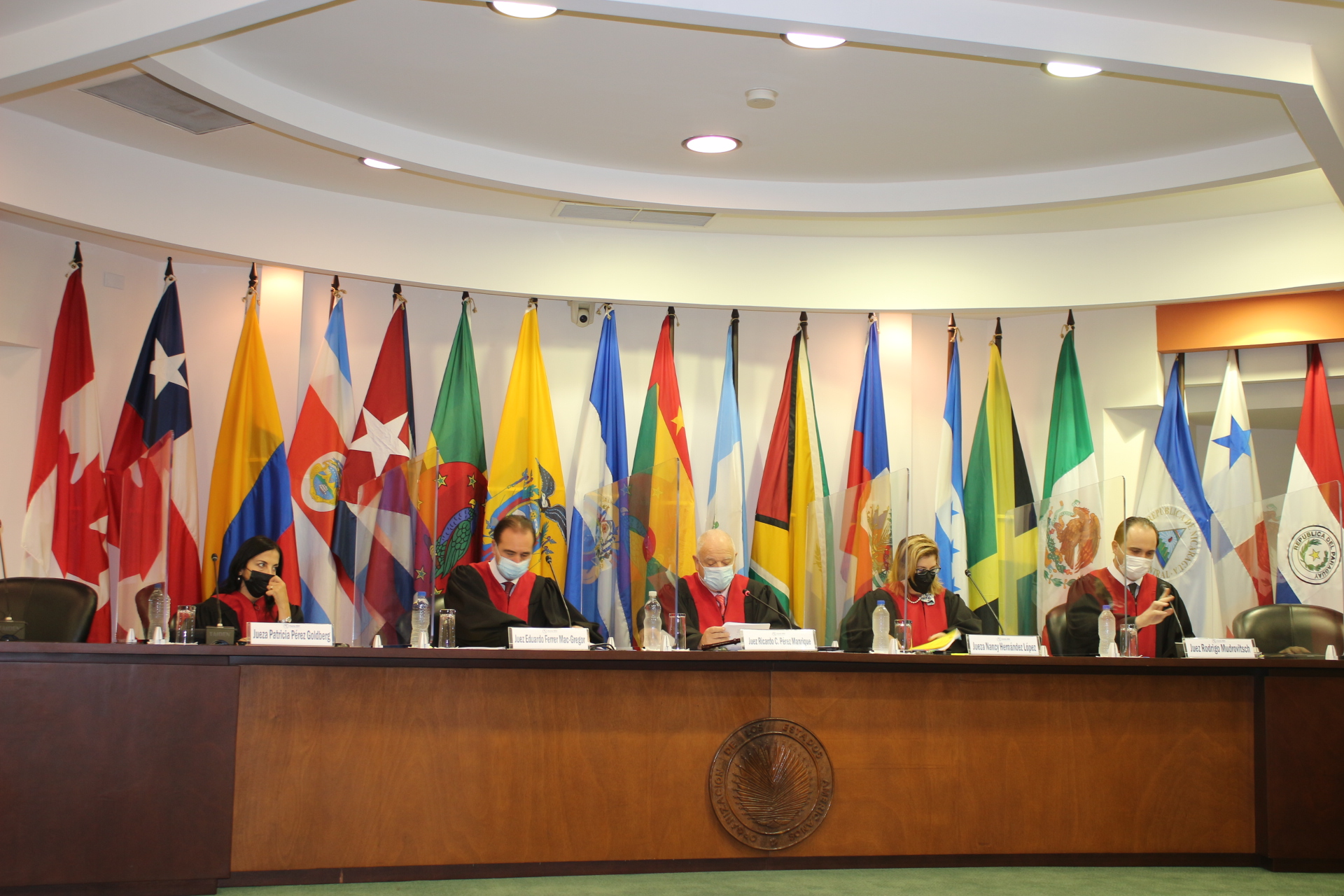Photo: Corte IDH (License: Creative Commons. Attribution-ShareAlike 2.0 Generic)

Three major legal victories for human rights defenders in Latin America
In a series of groundbreaking rulings in early 2024, the Inter-American Court of Human Rights and the Constitutional Court of Colombia set new precedents that significantly enhance protections for human rights defenders across Latin America.
The Inter-American Court of Human Rights (IACrtHR), as well as the Constitutional Court of Colombia have recently handed out pioneering judgements (two in which ISHR intervened) on human rights defenders (HRDs) that considerably elevate the recognition of standard of protection required for defenders in the region.
Cases at the Inter-American Court
In the case of Members of the “José Alvear Restrepo” (CAJAR) Lawyers Collective v. Colombia, led by regional NGO “CEJIL”, the Inter-American Court found that Colombia was responsible for the systematic harassment, stigmatisation, surveillance and attacks against the members of the Collective and their families.
This is the first time that an international court finds a violation of the right to defend rights, given that the attacks against CAJAR’s defenders hindered their work and resulted in some of them to refrain from doing it. The Court also recognised the existence of an autonomous right to ‘informational self-determination‘ for HRDs, which was violated by the arbitrary compilation and use of personal information of defenders.
Another significant development in this judgement was its recognition that all staff of the organisation could be considered HRDs, not only those directly engaging in litigation and advocacy activities. Consultants, administrative staff and other personnel were also integral in the organisation’s defence of human rights, so they were also considered HRDs.
The Inter-American Court also published its judgement in the case of Tavares Pereira et al. v. Brazil, regarding the disproportionate use of force against nearly 200 union members who were going to participate in a protest. ISHR intervened as amicus curiae in this case in July 2022, calling on the Inter-American Court to reaffirm and strengthen standards on the right to freedom of assembly, expression and association. The Court found Brazil responsible for the killing of Mr. Tavares and injuring other protestors, as well as for the subsequent impunity of those responsible.
‘Unconstitutional State of Affairs’ at the Constitutional Court of Colombia
At the national level, the Constitutional Court of Colombia ruled that the situation of HRDs in the country amounted to an ‘Unconstitutional State of Affairs’ – meaning that there are structural issues that put the rights of defenders at great risk. Last year, ISHR intervened in this case, providing the Court with human rights standards on HRDs that were not being met by Colombia, despite its international commitments.
The Constitutional Court produced an extraordinary judgement, in which it recognises the indispensable role that HRDs play in upholding human rights and the Rule of Law, and democracy, how attacks against them have a collective impact in society at large, and how the State has a constitutional mandate to protect them.
While recognising that Colombia has a pioneering and thorough system for the protection of defenders, the judgement orders authorities to address gaps in order to adequately protect defenders. Among these, authorities must:
- Take preventive, and not only reactive measures to address risks faced by defenders, which includes the need to collect sufficient data to detect patterns of attacks against defenders, as well as the need to promote, at all levels, the recognition of the importance of HRDs.
- Recognise that HRDs are a group in a vulnerable situation that deserve specific protection from the State.
- Apply gender and cultural perspectives when dealing with women, indigenous and / or gender-diverse defenders.
- Provide protection mechanisms with trained personnel and sufficient resources.
The way forward
‘These judgements are commendable and of vital importance for all of us: they have reaffirmed and recognised the rights of defenders as never before. We hope that other national and international bodies will follow suit’, said Javier Urízar, legal officer at ISHR.
‘The Courts have done their work, and we now look to other branches of government to implement the necessary measures and guarantee the right to defend rights; as well as businesses and society at large, to do their part to defend those that defend us’, he concluded.
